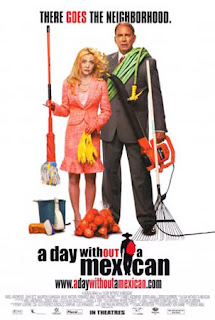
Recently I watched this movie "BorderTown," Starring Jennifer Lopez. I was really moved by the subject the movie protrays and how this movie's storyline falls so close to our home, El Paso. This film defines the reality of our border and the truths our border divides between Mexico and the United States. This flim is shocking in depicting the lies and corruption even murder that local authorites cover up and still continue today for the fact of reproduction in factories and consumption of money. I have decided to research this subject that so many try to cover up to make aware that these actions and murders and poverty are happening across the border that we pass or glance by on our way to work or Utep. It is a struggle everyday for the people of Mexico. While here in the United States we are open to opportunity and have laws and rights that help us shape our economy and lifestyles making it managable to excell and provide for our families! This will be my research topic...please feel free to comment and give me your opinion....I highly recommend you watch this movie because it is happening today as I write this and we should be so lucky to be living here in the United States as American citizens, having rights that others wish they could have!
Claim: "BorderTown," a film production inspired by true events, is a powerful as well as inspirational story depicting the border's truth in dividing two types of "realities," between the United States and Mexico, making it rhetorical.
Reason:
1) The border dividing the United States and Mexico is very rhetorical because it depicts two different "realities"/ "Truths." The government is different, the ecomomy is different, education is different. Women are more accessible to work in factories, making low wages, endagering their lives because of late hours, and poor security as well as benifits.
2) No Stable government because Mexico does not require you to pay taxes. In the United States our taxes pay for our government. We have rights unlike Mexicans/Latinos across the border.
3)We have "Freedom of Speech," "Protection," and "Benifits." We have those rights as American citizens. The border divides those rights. Mexico does not entitle or enforce these rights. Mexico is very corrupt with high poverty. No opportunities unlike the United States. The government is run with the mentality consisting of two laws in Mexico 1) money and influence 2) everyone else. Here in the United States we regulate laws, we are well educated and know how to use the rights we have to provide opportunity and power.
Warrant: How film productions such as, "BorderTown," change its viewers prospective about the border.

